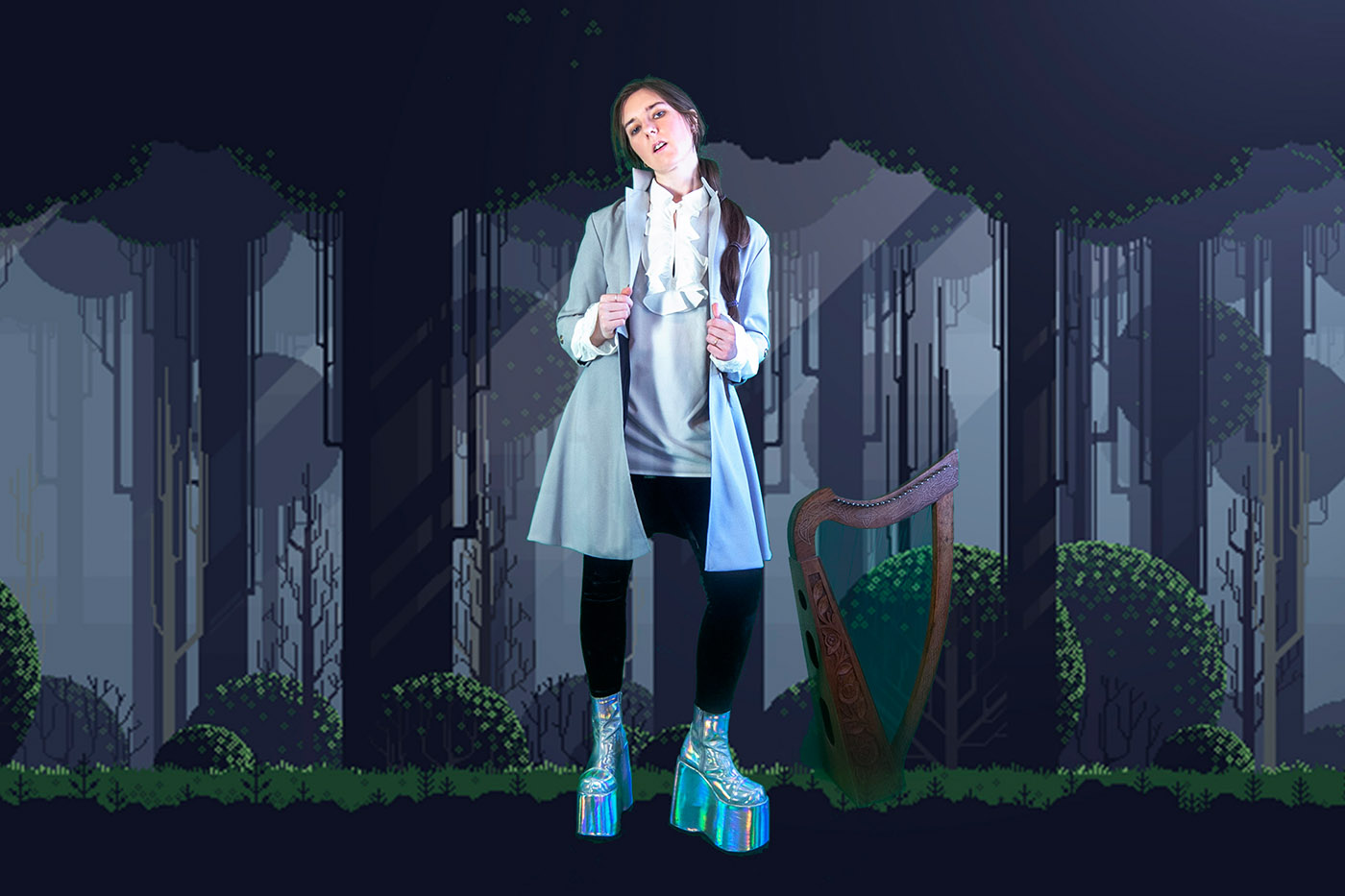
(Eli)zabeth Owens: Myth and Mirrors
LGBTQ+
Snapping our eyes open with a chorus of sharp breaths, “Once in a While” opens up Eli Owens’ second studio album, Knock Knock, and introduces us to the sonic palette at play: murmurous piano, percussion that scratches its way into the ear, field recordings from a distant fairytale and Owens’ vocals reverberating in the halls of their daydreams. The song also presents us with the record’s core explorations of sobriety, failure and acceptance—“Once in a while / I find myself feeling good / Once in a while / I ask myself if I should,” sings Owens. More than a direct response to their decision to become sober, the album is an assemblage of tracks meticulously cultivated over the past few years, reflecting a time of personal ferment. “I just felt like my life was feeling very spirally, trapped and claustrophobic,” they say.

Owens—who releases work under the moniker (Eli)zabeth Owens—has been involved in the arts since a young age, taking up music lessons in school. “I’ve always [played music] as a hobby,” they say. “I went to college for film and psychology, then decided that after doing marketing and video work for a while that I wanted to be more involved in music, and so now I’m a music teacher … My whole life kind of revolves around music.” Knock Knock shifts away from the folk-rock sounds Owens became known for on their debut record, Coming of Age, and instead ventures into art-pop experimentation. But Owens’ early work made it clear that their keen ear for musical embellishment and multi-layered mixes consistently leads to immersive musical experiences.
“I just felt like my life was feeling very spirally, trapped and claustrophobic.”
“When I was making these songs, there was no intention of like, ‘oh, this needs to sound a certain way,’ or, ‘this needs to fit in this box of what I’ve preconceived of this album’,” says Owens. “I really just let myself play.” It’s Owens’ sense of play on Knock Knock that draws us into their elven musical kingdom. Through the consistent incorporation of organic samples, Owens fluidly transitions from the rooted to the ethereal. “Something about being out in nature has always been very grounding for me, and I think there’s also this element of myth—like a mythos to these sounds. There’s so much metaphor.”
It’s on tracks such as “The Lagoon” where Owens’ fascination with these sounds enriches the song with mythic qualities. “Hot Texas air, and life everywhere / Feeling a million years old and new / There wasn’t anything I couldn’t do / In that lagoon,” they sing over rushing water, birds chirping and a plucked harp recalling Björk’s Vespertine. “The primary reason I play music is to figure shit out for myself. Layering different sounds really helps me process whatever the message or the feeling of the song is,” Owens says. Their use of these layers comes together spectacularly on “Oversoon” as they weave an orchestra out of clicky electronic samples, looping harps and the imprisoning ticking of a clock: “When I was a kid / I thought I’d die young / Wave goodbye to everything and everyone / Twenty years go by and I’m still alive … / What to do with all this time?” they sing with a devastating vocal performance.

“The primary reason I play music is to figure shit out for myself. Layering different sounds really helps me process whatever the message or the feeling of the song is.”
Owens’ use of music as a therapeutic tool creates a confidential experience that explores “feelings of failure, of being 20-something and not really knowing what the fuck to do with my life … feeling unfulfilled in a lot of ways and dealing with ego and this idea of failure,” they say. The listener is granted access to private spaces over the course of the album as Owens, little by little, discloses the intimacies of their struggles. Near the end of the record, “Sending and Receiving” highlights Owens’ use of imagery and tactile description to translate their emotions: “I’m gonna lie down naked in the rain / Where the shame can / Drip off of me like / Dirt from a dog / And the tears and the river water are all the same,” they sing.
The odyssey through Knock Knock is as captivating as it is transportive, guided by Owens’ admiration for storytelling. “Structuring things narratively is how I make sense of the world,” says Owens. “Being able to take all these feelings, thoughts and crises that I’ve had over the past couple years and weave something that has structure out of it does something profoundly settling for myself.” For the release of the record, Owens has been constructing a visual accompaniment for each song, which they will string together for a virtual performance. They say the show will reframe the album into a theatrical-like experience.
“Being able to take all these feelings, thoughts and crises that I’ve had over the past couple years and weave something that has structure out of it does something profoundly settling for myself.”
Along with the release of the visual album, Owens plans to help raise money for Grimalkin Records—the label releasing Knock Knock—where they serve an administrative role. “Grimalkin Records is a benefit record label and artist collective that releases [and] supports LGBTQ+ artists, queer artists [and] artists of color through releasing their music,” says Owens. Physical sales of Knock Knock will be going directly to the label, “so that we can start applying for grants and hopefully have some kind of sustainable business model going,” says Owens.
Knock Knock is out Aug. 13 and is available for purchase at elizabethowens.bandcamp.com. Musing from a fairy fountain within a forest of fables, Owens has crafted a stirring new record that seeks to bathe a bleary soul.
